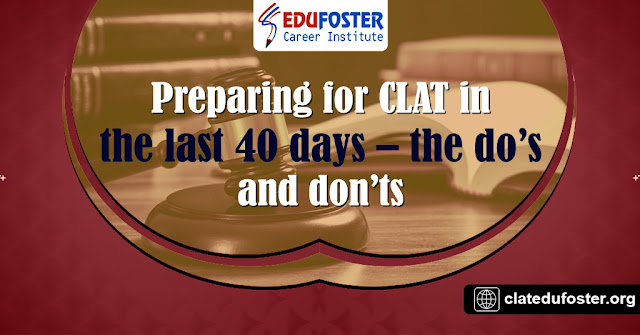Logical Reasoning: Blood Relations for CLAT introduced by the Top Law Coaching in Kolkata
Introduction
Blood relations reasoning is one of the most important logical reasoning topics. Through this blog, we will know about the blood relations for CLAT introduced by the top law coaching in Kolkata and also about the CLAT exam in broader sense. So, without wasting time let’s move on further.
In the pursuit of a legal career, preparing for the Common Law Admission Test (CLAT) is a pivotal step for many aspiring lawyers. One of the core sections of the CLAT exam is Logical Reasoning, and within this section, the topic of "Blood Relations" is of paramount importance. In this blog, we will delve into the significance of mastering Blood Relations, and how the top law coaching in Kolkata can help you achieve this crucial skill.
Understanding Blood Relations:
Blood Relations is a segment of Logical Reasoning that assesses a candidate's ability
to establish connections and relationships among family members. This skill is
vital for solving complex legal cases that may involve tracing lineage,
inheritance issues, or legal disputes within families.
The Importance of Blood Relations in
CLAT:
Scoring Potential: Blood
Relations questions are a consistent part of the CLAT exam. A strong grasp of
this topic can help boost your overall score.
Logical Analysis: Solving
Blood Relations problems requires logical thinking and deduction, skills that are
essential for a successful legal career.
Real-Life Applications:
Understanding family relationships is not just an exam requirement but a
practical skill that lawyers often use when dealing with clients and their
cases.
Why Choose the Top Law Coaching in
Kolkata?
The journey to mastering Blood Relations begins with choosing the right
coaching institute. Kolkata, known for its rich educational heritage, houses
some of the top law coaching centres in the country. Here's why you should
consider CLAT Edufoster Institute.
Expert Faculty: The best CLAT coaching centre in Kolkata employ experienced and knowledgeable faculty members who can simplify complex concepts, making it easier for students to understand Blood Relations.
Comprehensive Study Material: The best law coaching in Kolkata
provide well-structured study materials, practice papers, and mock tests
designed to cover every aspect of Blood Relations.
Personalized Guidance:
Individual attention is crucial when learning a challenging topic like Blood
Relations. The top institute like CLAT Edufoster Institute offer personalized
guidance to help students excel in this area.
Peer Learning: Interacting
with like-minded peers in a competitive environment can enhance your
problem-solving skills and confidence.
Time Management: The CLAT
Edufoster institutes teach effective time management strategies, a crucial
aspect of the CLAT exam, to ensure you can tackle all sections within the
stipulated time.
Mock tests: The CLAT Edufoster Institute also provides the best mock tests. A student can clear his or her all doubts by practicing mock tests. It is the easiest way to pass out the examination.
Previous year test papers: The institute or the top law coaching in Kolkata is also
engaged in providing previous year test papers and sample question papers since
long time.
Tips for Mastering Blood Relations:
Understand the Basics: Start
by understanding the fundamentals of Blood Relations, including terms like
father, mother, son, daughter, etc.
Draw Family Trees: Visual
aids like family trees can simplify complex problems and make it easier to
identify relationships.
Practice Regularly:
Consistent practice is key to mastering Blood Relations. Work on a variety of
problems to strengthen your skills.
Use Logical Deduction: Think
logically and use deductive reasoning to arrive at solutions. Avoid making
assumptions without evidence.
Time Management: Allocate a
specific amount of time to solve Blood Relations questions during your CLAT
mock tests to simulate real exam conditions.
There are some typical type of blood relation questions included in the logical
reasoning syllabus of CLAT 2023.
1. Dialogue based questions – Here a dialogue of a person describing their blood relations is the content of the question. Based on the dialogue, a question is asked.
2. Puzzle based questions – A specific piece of information regarding blood relation is provided. Questions are asked based on that information.
3. Coding Decoding questions - Symbols and codes are used to define a blood relationship. Questions are asked based on the information provided through the symbols. This is the most asked type of question in recent days.
Family tree
A family tree is a pictorial representation of the blood relation among family members. The relations are spread out like the branches of a tree and hence the name. There are a few important facts about family tree representation:
· The female members of the family are denoted by circles, while squares denote the male members.
· Double-headed arrows are used to denote the relations between the family members.
· For spouse relation denotations, double lines are used.
· Each generation is represented on the same horizontal level.
· The subsequent generations are represented vertically, with the elder ones on the top and younger ones at the bottom.
Conclusion
Mastering Blood Relations is a fundamental step in achieving success in the CLAT exam and, ultimately, in your legal career. Choosing the best law coaching in Kolkata can provide you with the necessary guidance and resources to excel in this critical aspect of Logical Reasoning. With dedication, practice, and expert guidance, you can confidently approach Blood Relations questions in the CLAT exam and embark on your journey towards becoming a successful lawyer.


Comments
Post a Comment